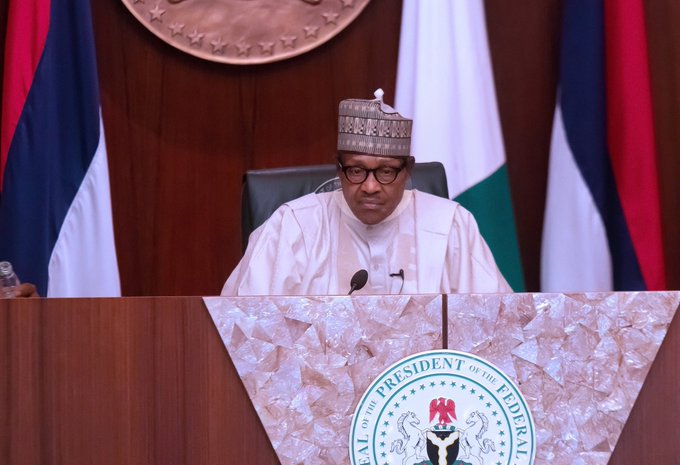During his 60th Independence Anniversary speech last week, President Muhammadu Buhari warned that “those in the previous Governments from 1999–2015 who presided over the near destruction of the country”, should not now have “the impudence to attempt to criticise our efforts”.
The president then boasted that “no government in the past did what we are doing with such scarce resources”.
Now, no one should expect a president from one political party to lavish praises on the performance of their predecessors from opposing parties. It is in fact routine politics everywhere for political leaders to denounce or belittle the achievements of others who held the same office before them while at the same time emphasising or even inflating their own records.
For President Buhari in particular, denouncing previous governments for corruption and non-performance was a major campaign tactic throughout his long march to the presidency, but particularly in his contests against former Presidents Obasanjo in 2003, Yar’adua in 2007, and Jonathan in 2011 and 2015. But routine politics and campaign tactics aside, the president’s comment raises three questions that border on a fourth, at least for the non-partisan observer.
The first is why. The whole speech itself mainly sought to draw our attention to our shared destiny and the significance of our unity as a nation, and the need for celebration for achieving the diamond jubilee of nationhood against all odds. That is entirely appropriate and is exactly the sort of reminder Nigeria needs at the moment. But the claim that his immediate predecessors destroyed the country on such an occasion is hardly unifying, and certainly uncompromising.
The second question is whether the claim itself is valid. There is little doubt about it, all governments between 1999 and 2015 performed well below the expectation of Nigerians, regardless of the resources available to them. They also missed several opportune moments to set the country on a developmental path far beyond what they delivered. But how we go from there to ‘presiding over the near destruction’ of Nigeria is too much of a stretch to hold true.
There has always been an inherent political and economic instability in Nigeria arising from several competing forces and interests. Even the British, with all their vaunted skill in statecraft, struggled to hold Nigeria together in the 1950s, as has every government since then. Sometimes there is relative calm, but mostly it is one political conflict or another, often several at once.
That is how this country has always been. And it is why no Nigerian president or head of state has ever had it easy, at least not while still in office. Hardly anything negative happened in Nigeria between 1999 and 2015 that had not happened before, or since. Corruption and insecurity, in particular, were not new to Nigeria before 1999. And they remain with us still. ‘Destruction’ is therefore too strong a word.
The third issue of whether this government has so far out-performed its predecessors, even with ‘scarce resources’, is rather more complex and will require a logical sketch to approach. By May 2023, President Buhari’s government would have spent exactly half the time his three predecessors did combine. We would then expect his government to show more than fifty percent of whatever these previous administrations achieved in critical sectors of the economy, polity and society.
This is the only logical way for the current government to claim better performance than its immediate predecessors. If Mr X spends half the time in an office as Mr Y did in the same office, then we would expect Mr X to achieve more than half the performance of Mr Y to claim superiority. This is the challenge of comparative analysis that President Buhari threw at non-partisan observers and I will take it up in-depth next week by comparing the performance of his government with those of Obasanjo, Yar’adua and Jonathan in key areas like the economy, anti-corruption and insecurity.
It is true that Buhari assumed office under adverse conditions, particularly with insecurity and the massive fall in oil prices from 2014 through 2015. But adverse conditions are in fact the true test of political leadership. A leader’s performance should be judged more by their skill and ability to generate the resources they need to solve problems than by the amount of resources already available to them on day one. So ‘scarce resources’ should be less a limitation for this or any other president, since the instrument of the federal government is itself a considerable resource.
All of this leads us to the final question of why President Buhari should bother about throwing partisan salvos at this point in his final term. By this time next year, the president would have just about eighteen months left to complete his eight years. My guess is that he would struggle to find the space to do anything of consequence in terms of delivering any policy agenda he might have because the politics of 2023 general elections will dominate everything else during those final months.
In other words, the president has just about one year left to add to whatever else he and his party might have achieved so far. Presidents are not remembered for their criticisms of other leaders, however sustained or justified these might be. Nor are they remembered for their eventual success at the polls, however, epic that might have been. Every president will be remembered only by the enduring impacts of their legacy on the country they led. Blaming others is not a legacy in itself.

 Join Daily Trust WhatsApp Community For Quick Access To News and Happenings Around You.
Join Daily Trust WhatsApp Community For Quick Access To News and Happenings Around You.


